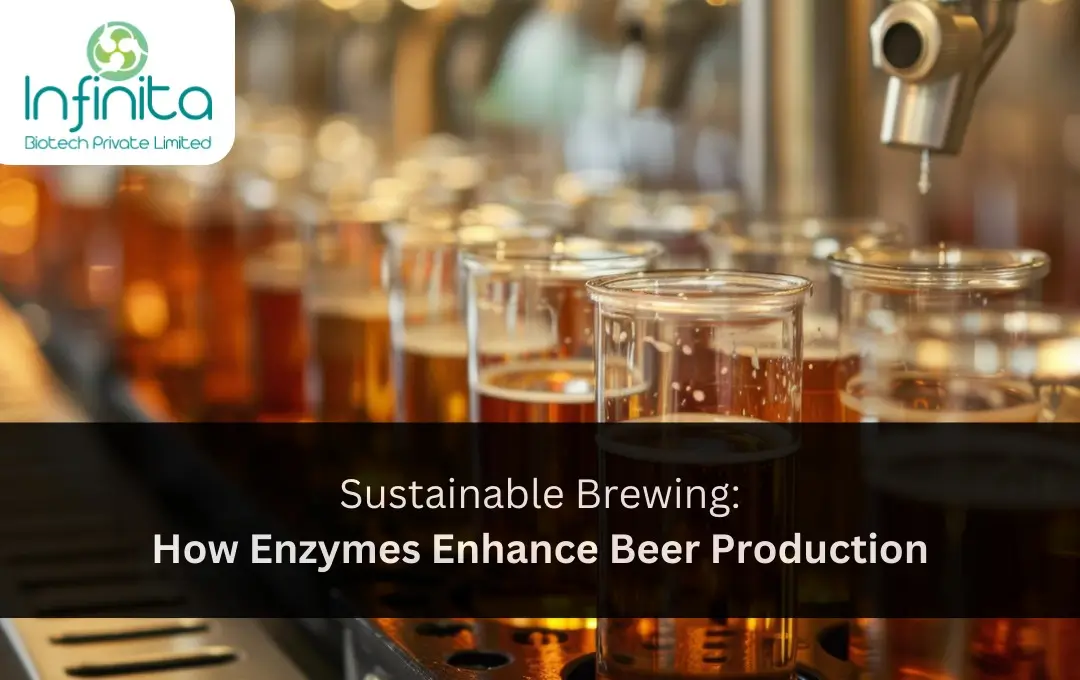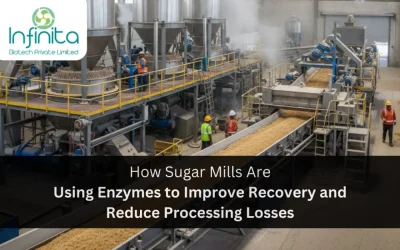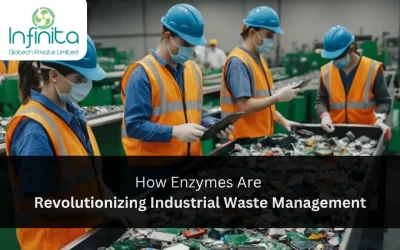The beer industry has always been at the forefront of innovation, combining tradition with modern science to produce beverages that delight consumers. Today, sustainability has become a major focus, with breweries seeking ways to reduce environmental impact while maintaining quality and efficiency. One of the most effective tools in achieving this balance is the use of enzymes, which play a pivotal role in sustainable brewing by optimizing processes, improving yield, and reducing waste.
Understanding Sustainable Brewing
Sustainable brewing refers to practices that minimize resource consumption, reduce waste, and lower environmental impact, all while maintaining high-quality beer. Energy efficiency, water conservation, and responsible sourcing of ingredients are core components of sustainable brewing. Achieving these goals requires innovative approaches in production, including the strategic use of enzymes.
Role of Enzymes in Beer Production
Enzymes are natural catalysts that accelerate chemical reactions, making them invaluable in the brewing process. They enhance the breakdown of complex molecules in grains and adjuncts, facilitating efficient fermentation and improving overall yield.
Key enzyme functions include:
- Starch Breakdown: Amylases convert starches into fermentable sugars.
- Protein Modification: Proteases improve clarity, foam stability, and flavor.
- Cell Wall Degradation: Glucanases and hemicellulases break down fibers, improving filtration and nutrient release.
These actions increase efficiency, reduce waste, and enhance beer quality—central objectives of sustainable brewing.
Enzyme Functions and Benefits Table
To summarize the critical roles of enzymes in sustainable brewing, the following table provides a clear overview:
| Enzyme | Primary Function | Impact on Sustainable Brewing |
|---|---|---|
| Amylase | Converts starch into fermentable sugars | Increases alcohol yield, reduces grain usage, improves energy efficiency |
| Protease | Breaks down proteins | Enhances beer clarity, foam stability, and reduces haze formation |
| Glucanase | Degrades cell wall glucans | Improves filtration, reduces wort viscosity, enhances nutrient availability |
| Hemicellulase | Breaks down hemicellulose fibers | Facilitates better extraction, reduces waste, and improves brewing efficiency |
| Beta-Glucanase | Specifically targets beta-glucans in grains | Reduces mash viscosity, optimizes fermentation, lowers energy consumption |
Enhancing Efficiency and Yield
Enzyme-assisted brewing maximizes conversion of raw materials into fermentable sugars, increasing alcohol yield without increasing grain consumption. This efficiency has multiple sustainability benefits:
- Reduced raw material usage, conserving resources.
- Lower energy consumption during mashing and boiling.
- Minimized waste production, as more of the grain is utilized effectively.
Improving Beer Quality
Sustainability also involves maintaining or enhancing product quality. Enzymes help achieve this by:
- Reducing haze formation for clearer beer.
- Enhancing flavor stability and mouthfeel.
- Improving foam stability for better presentation.
Environmental Impact Reduction
Waste streams, including spent grains and residual sugars, can contribute to pollution if not managed properly. Enzymes help mitigate these effects by:
- Making spent grains more suitable for animal feed or composting.
- Reducing chemical usage in filtration and clarification.
- Lowering carbon footprint through optimized process efficiency.
Future of Sustainable Brewing with Enzymes
Advances in biotechnology are enabling enzymes that are more robust, versatile, and tailored for specific brewing conditions. Enzyme-assisted brewing allows breweries to use alternative grains, lower water usage, and reduce energy input—all while producing high-quality beer.
Conclusion
Sustainable brewing is no longer optional; it is essential for reducing environmental impact while maintaining quality. Enzymes enhance starch conversion, protein modification, and overall process efficiency, enabling breweries to achieve higher yields, improved quality, and reduced waste.
By integrating enzyme technology, breweries can drive both environmental responsibility and operational excellence, making enzymes indispensable partners in the next generation of sustainable beer production.

 Summarize this Article with AI
Summarize this Article with AI






